
"Losing My Religion" is a song by American alternative rock band R.E.M., released in February 1991 as the first single and the second track from the group's seventh album, Out of Time (1991). Built on a mandolin riff, the song was an unlikely hit for the group, garnering extensive airplay on radio as well as on MTV and VH1 due to its critically acclaimed music video. The single became R.E.M.'s highest-charting hit in the United States, reaching No. 4 on the Billboard Hot 100 and expanding the group's popularity beyond its original fan-base. At the 1992 Grammy Awards, "Losing My Religion" won two awards: Best Short Form Music Video and Best Pop Performance by a Duo or Group with Vocal. In 2017, "Losing My Religion" was inducted into the Grammy Hall of Fame.

In Time: The Best of R.E.M. 1988–2003 is the second official compilation album released by R.E.M. Issued in 2003, it includes tracks from their Warner Bros. Records era, from 1988's Green to 2001's Reveal, as well as two new recordings and two songs from movie soundtracks. The album was the tenth-best-selling album of 2003 in the UK, and the 50th-best-selling album of the 2000s in the UK.
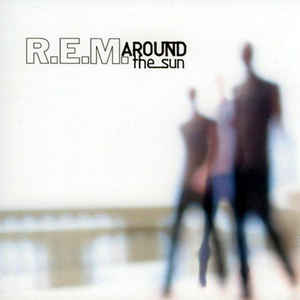
Around the Sun is the 13th studio album by American alternative rock band R.E.M., released on October 5, 2004 on Warner Bros. Records.

"What's the Frequency, Kenneth?" is a song by American alternative rock band R.E.M. from their ninth studio album, Monster (1994). The song's title refers to an incident in New York City in 1986 in which two then-unknown assailants attacked journalist Dan Rather while repeating "Kenneth, what is the frequency?"
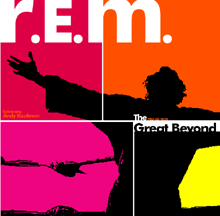
"The Great Beyond" is a song by American rock band R.E.M., written for the 1999 film Man on the Moon. It was released as a single the same year for support of the film's soundtrack album. On the soundtrack, there is some dialogue from the movie at the end of the track; meanwhile, the single version is a radio edit, with the bridge omitted.
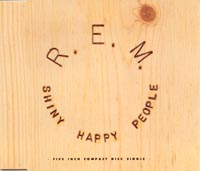
"Shiny Happy People" is a song by the American rock band R.E.M., released as the second single from their seventh studio album, Out of Time (1991). It features guest vocals by Kate Pierson of the B-52's, who also appears in the music video.

"Everybody Hurts" is a song by American rock band R.E.M. from their eighth studio album, Automatic for the People (1992), and released as a single in April 1993. It peaked at number 29 on the US Billboard Hot 100. The song fared much better on the US Cash Box Top 100, where it peaked at number 18. It also reached the top 10 on the charts of Australia, Canada, France, Iceland, Ireland, the Netherlands, and the United Kingdom. Its music video was directed by Jake Scott. In 2003, Q ranked "Everybody Hurts" at number 31 on their list of the "1001 Best Songs Ever". In 2005, Blender ranked the song at number 238 on their list of "Greatest Songs Since You Were Born".

"Man on the Moon" is a song by American alternative rock band R.E.M., released in November 1992 as the second single from their eighth album, Automatic for the People (1992). The lyrics were written by lead singer Michael Stipe, and the music by drummer Bill Berry and guitarist Peter Buck. The song was well received by critics and reached number 30 on the US Billboard Hot 100, number 17 on the US Cash Box Top 100, number 18 on the UK Singles Chart, and number one in Iceland. It remains one of R.E.M.'s most popular songs and was included on the compilations In Time: The Best of R.E.M. 1988–2003 and Part Lies, Part Heart, Part Truth, Part Garbage 1982–2011.
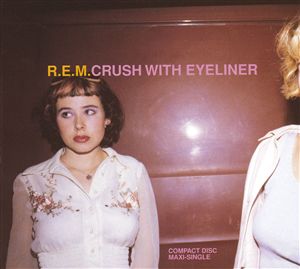
"Crush with Eyeliner" is a song by American rock band R.E.M., released by Warner Bros. Records as the fourth single from their ninth studio album, Monster (1994). Sonic Youth's Thurston Moore provides background vocals. Michael Stipe claims the song was inspired by the band New York Dolls, who, in his opinion, "knew how to exaggerate a song, to make it sound really sleazy and over the top." This was also one of the first songs that surfaced from Stipe after the writer's block that hounded him after the death of his friend, actor River Phoenix.

"Bang and Blame" is a song by American alternative rock group R.E.M. It was released as the second single from their ninth studio album, Monster (1994), on October 31, 1994 by Warner Bros. Records. The song was R.E.M.'s last to reach the top 40 on the US Billboard Hot 100, peaking at number 19, and was also their last number-one single on the Billboard Modern Rock Tracks chart. The single reached number one in Canada—R.E.M.'s only single to do so—and peaked inside the top 40 on the charts of Australia, Belgium, Finland, Iceland, Ireland, the Netherlands, New Zealand, and the United Kingdom.

"The Sidewinder Sleeps Tonite" is a song by American alternative rock band R.E.M. It was influenced by the song "The Lion Sleeps Tonight", both in the title of the song and through the song's opening refrain. The band used "The Lion Sleeps Tonight" as the B-side to this song in the U.S. The song was released on R.E.M.'s 1992 album, Automatic for the People, and was later released as a single in February 1993, reaching number one in Iceland, number 13 in Ireland, number 17 in the United Kingdom, and number 29 in New Zealand.
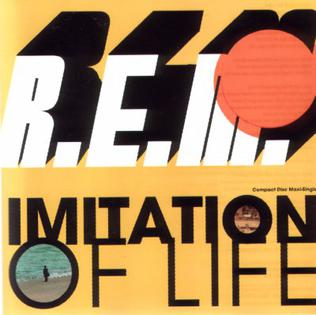
"Imitation of Life" is a song by American alternative rock band R.E.M. It was written by band members Peter Buck, Mike Mills, and Michael Stipe and produced by the band with Pat McCarthy for their 12th studio album, Reveal (2001). The track's title comes from Douglas Sirk's 1959 film of the same name and is used as a metaphor for adolescence and adulthood. One of R.E.M.'s most pop-influenced tracks, "Imitation of Life" has been described lyrically as "see[ing] through the puffed-up performance of a hopeful entertainer", as well as the enjoyment of love.
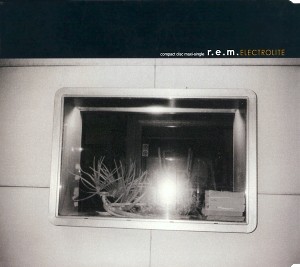
"Electrolite" is a song by R.E.M. released as their third single and closing track from their tenth studio album, New Adventures in Hi-Fi. The song is a piano-based ballad to Los Angeles, Hollywood icons and the closing 20th century. Initially, Michael Stipe objected to including the song on the album, but was won over by Peter Buck and Mike Mills. It has since become one of his favorite R.E.M. songs as well as one of Radiohead lead singer Thom Yorke's; Radiohead has covered the song.
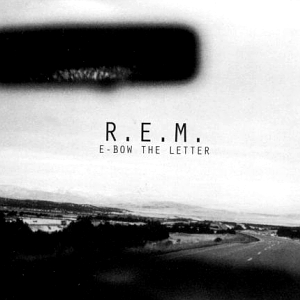
"E-Bow the Letter" is the first single from American rock band R.E.M.'s 10th studio album, New Adventures in Hi-Fi (1996). It was released on August 19, 1996, several weeks before the album's release. During the same month, R.E.M. signed a then record-breaking five-album contract with Warner Bros. Records. The song features American singer-songwriter and "Godmother of Punk" Patti Smith performing backing vocals. Smith was cited as a major influence by band members Michael Stipe and Peter Buck, and she also provided backing vocals for "Blue", the closing track on the band's final studio album, Collapse into Now, in 2011.

"Bad Day" is a song recorded by American alternative rock band R.E.M. It is one of two previously unreleased songs from their 2003 compilation album, In Time: The Best of R.E.M. 1988–2003, and was released as the album's lead single on September 15, 2003.

"Drive" is a song by American alternative rock band R.E.M. It is the first track on and the lead single from their eighth studio album, Automatic for the People (1992), and was the first song lead singer Michael Stipe wrote on a computer. "Drive" peaked at number 28 on the US Billboard Hot 100, number one on the Billboard Modern Rock Tracks chart, and number two on the Billboard Album Rock Tracks chart. Internationally, "Drive" became R.E.M.'s then-second-biggest hit on the UK Singles Charts, peaking at number 11, and their biggest hit in Norway until "Supernatural Superserious" in 2008, reaching number three. Elsewhere, the song reached the top 10 in Canada, Ireland, New Zealand, and Switzerland.

"Daysleeper" is a song by American alternative rock band R.E.M. It was released as the first single from their eleventh studio album Up on October 12, 1998. Sung from the point of view of a night shift worker corresponding with colleagues, "Daysleeper" focuses on the disorientation of time and circadian rhythm in such a lifestyle, leading to despair and loss of identity. Lead singer Michael Stipe developed the song's concept after noticing a sign reading "daysleeper" on a New York City apartment door.
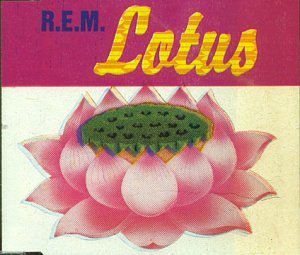
"Lotus" is a song by American rock band R.E.M., released as the second single from their eleventh studio album, Up (1998). The song is somewhat minimalist, with Michael Stipe singing surreal lyrics in a percussive manner. It builds on a four-note keyboard part, with a distorted guitar riff at the beginning and after the second chorus. The song's recurring line "I ate the lotus" appeared in an alternate form in a previous R.E.M. song, "Be Mine". The line "dot dot dot and I feel fine" is a reference to R.E.M.'s 1987 hit "It's the End of the World as We Know It ".

"All the Way to Reno (You're Gonna Be a Star)" is a song by American rock band R.E.M. It was released on July 23, 2001 as the second single from the band's twelfth studio album, Reveal (2001). The single did not chart on the US Billboard Hot 100, but it did reach number 24 on the UK Singles Chart, number 31 in Italy, and number 34 in Ireland.

"Animal" is a single released by American rock band R.E.M. It was one of two new songs recorded for the band's Warner Bros. Records compilation album, In Time: The Best of R.E.M. 1988–2003, and was released as a single in support of the album.




















